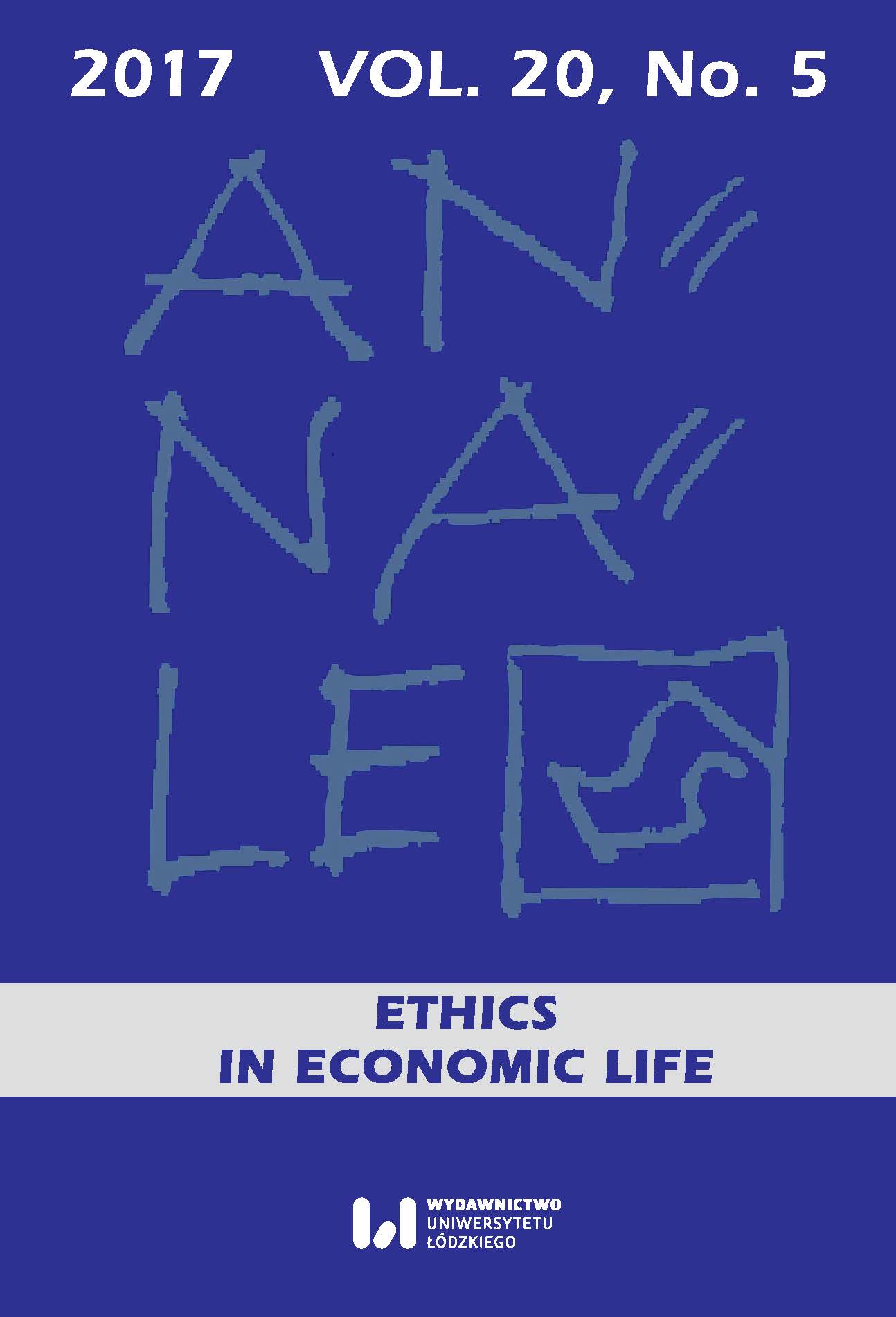The human as capital? A contribution to the critique of the theory of human capital
DOI:
https://doi.org/10.18778/1899-2226.20.5.08Słowa kluczowe:
capital, human capital, person, personalismAbstrakt
In modern economic theories, human qualities are treated as autonomous production factors, which are called “human capital”. However, these theories provide no description of the relationship between human capital and the man who is its “bearer”, nor an explanation of the formation process of that capital. In the thesis, the author tries to justify it as follows: human qualities, including knowledge and skills, are an integral part of a human being, that is, they are involved in every human act. It is, therefore, wrong to analyse their economic significance in isolation from the whole structure of human activity. Through his or her action, man discovers the potential in things and relationships in the form of the possibility of using them for a particular purpose. Capital is thus realized by the human potential of things that form a system for transforming the world. In the first part of the article, a general description of human capital will be provided. In the second part, it will be criticized, while in the third part, there will be an attempt to show the proper relationship between man and capital from the perspective of personalism.
Bibliografia
Blair, M. M. (2011). An economic perspective on the notion of “Human Capital”. In A. Burton-Jones, & J. C. Spender (Eds.). The Oxford Handbook of Human Capital. Oxford University Press.
Google Scholar
Blaug, M. (1976). The empirical status of human capital theory: A slightly jaundiced survey. Journal of Economic Literature, 14(3), 827–855.
Google Scholar
Carney, S. (2014). Czerwony rynek. Na tropie handlarzy organów, złodziei kości, producentów krwi i porywaczy dzieci. Wołowiec: Wydawnictwo Czarne.
Google Scholar
Coase, R. H. (2013). Firma, rynek i prawo. Warszawa: Oficyna Wolters Kluwer business.
Google Scholar
Dobija, M. (Ed.). (2011). Kapitał ludzki w perspektywie ekonomicznej. Kraków: Wydawnictwo Uniwersytetu Ekonomicznego w Krakowie.
Google Scholar
Domański, S. R. (1993). Kapitał ludzki i wzrost gospodarczy. Warszawa: Wydawnictwo Naukowe PWN.
Google Scholar
Drobny, P. (2017). Człowiek jako kapitał? Przyczynek do krytyki teorii kapitału ludzkiego. Annales. Ethics in Economic Life, 20(3), 7–19.
Google Scholar
Harari, Y. N. (2014). Od zwierząt do bogów. Krótka historia ludzkości. Warszawa: Wydawnictwo Naukowe PWN.
Google Scholar
Hayek, F. A. (2013). Nadużycie rozumu. Warszawa: Prohibita.
Google Scholar
Kiker, B. F. (1966). The historical roots of the concept of human capital. Journal of Political Economy, 74(5), 481–499.
Google Scholar
Kurek, B. (2011). Hipoteza deterministycznej premii za ryzyko. Kraków: Wydawnictwo Uniwersytetu Ekonomicznego w Krakowie.
Google Scholar
Metzinger, T. (2009). The ego tunnel: The science of the mind and the myth of the self. New York: Basic Books.
Google Scholar
Pinker, S. (2012). Tabula rasa. Spory o naturę ludzką. Sopot: GWP.
Google Scholar
Possenti, V. (2017). Osoba nową zasadą. Lublin: Polskie Towarzystwo Tomasza z Akwinu.
Google Scholar
Schultz, T. W. (2014). Ekonomia kapitału ludzkiego. Warszawa: Oficyna Wolters Kluwer business.
Google Scholar
Tittenbrun, J. (2014). Kolonizacja nauki i świata przez kapitał. Teoria światów równoległych w wydaniu socjologii wiedzy. Poznań: Zysk i S-ka.
Google Scholar
Tomer, J. F. (2008). Intangible capital. Its contribution to economic growth well-being and rationality. Cheltenham, UK, Northampton, MA, USA: Edward Elgar Publishing.
Google Scholar
Tomer, J. F. (2016). Integrating human capital with human development. The path to a more productive and humane economy. London: Palgrave Macmillan.
Google Scholar
Williamson, O. E. (1998). Ekonomiczne instytucje kapitalizmu. Warszawa: Wydawnictwo Naukowe PWN.
Google Scholar
Wojtyła, K. (2009). Filozof i papież. Wybór tekstów. Warszawa: Oficyna Naukowa.
Google Scholar
Pobrania
Opublikowane
Jak cytować
Numer
Dział
Licencja
Prawa autorskie (c) 2017 Annales. Etyka w Życiu Gospodarczym

Utwór dostępny jest na licencji Creative Commons Uznanie autorstwa – Użycie niekomercyjne – Bez utworów zależnych 4.0 Międzynarodowe.









